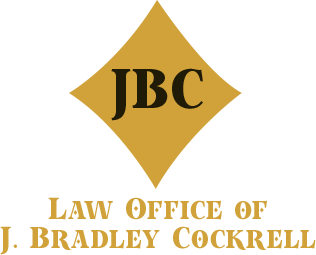The presumption of innocence is a fundamental principle in criminal law, asserting that an accused individual is innocent until proven guilty beyond a reasonable doubt. However, in Louisiana, when a defendant's blood alcohol or breath test reading shows .08 grams % or higher in an Operating While Intoxicated (OWI) or Driving While Intoxicated (DWI) case, the dynamics of the presumption of innocence are altered. In this blog post, we will delve into the mechanisms through which this presumption is lost, and the implications it holds for defendants facing OWI/DWI charges.
Establishment of BAC Threshold
In Louisiana, like in many other jurisdictions, a Blood Alcohol Concentration (BAC) of .08 grams % is considered the legal limit for driving. If a breath test or blood test indicates that a defendant's BAC exceeds this threshold, it automatically triggers the presumption that the individual was operating a vehicle while intoxicated.
Administrative License Suspension
Upon registering a BAC of .08 grams % or higher, Louisiana enforces an administrative license suspension. This means that the defendant's driver's license is temporarily suspended, regardless of the criminal charges. The accused must then request an administrative hearing to challenge the suspension, but during this period, they face difficulties in maintaining their driving privileges.
Shifted Burden of Proof
With a BAC reading exceeding the legal limit, the burden of proof in an OWI/DWI case undergoes a shift. Instead of the prosecution having to prove the defendant's guilt beyond a reasonable doubt, the defendant must now demonstrate that the BAC reading was inaccurate or that other factors affected the test results.
Challenging the Test Results
Defendants in Louisiana can challenge the BAC test results by raising issues related to the calibration and maintenance of the breathalyzer equipment, the competence and qualifications of the personnel administering the test, or the handling and storage of blood samples, if applicable. However, the burden to prove such issues lies with the defendant.
Expert Witnesses
In some cases, defendants may choose to present expert witnesses who can attest to potential inaccuracies or limitations of BAC testing. This can be a crucial strategy in challenging the presumption of guilt based solely on the test results.
Field Sobriety Tests and Officer Observations
Apart from the BAC test, law enforcement officers may use field sobriety tests and their observations of the defendant's behavior and physical appearance as additional evidence of impairment. Challenging these observations can also be essential in challenging the presumption of guilt.
Jury Perception
Despite the burden shift, the presumption of innocence remains a core concept during trial. Jurors are instructed to consider all evidence presented and must be convinced of the defendant's guilt beyond a reasonable doubt, even if the BAC reading exceeds the legal limit.
In Louisiana, when a defendant's blood alcohol or breath test reading shows .08 grams % or higher, the presumption of innocence is indeed compromised. However, it is essential to recognize that the presumption is not entirely lost, as defendants can still challenge the test results, present evidence, and rely on the judicial system to ensure a fair trial. As OWI/DWI cases involve complex legal and scientific aspects, it is crucial for defendants to seek competent legal representation to protect their rights and pursue a just outcome.

